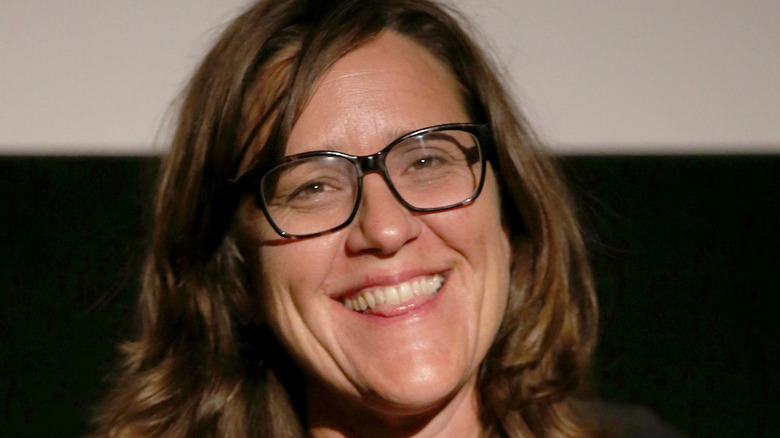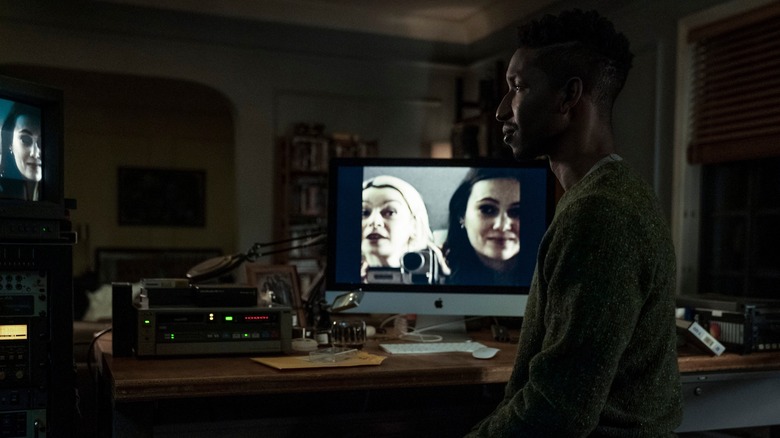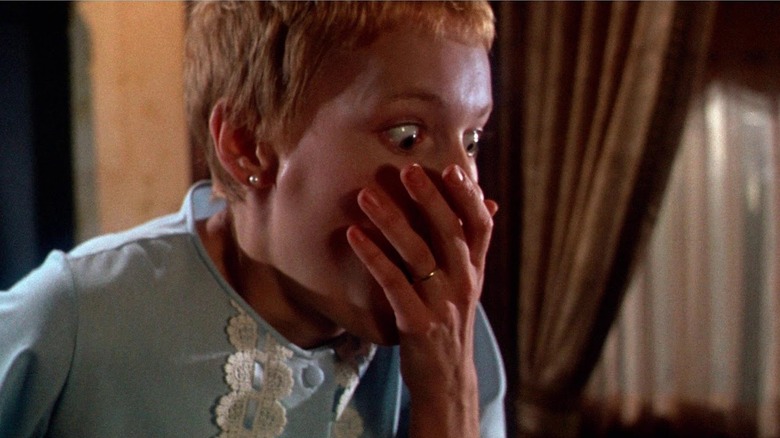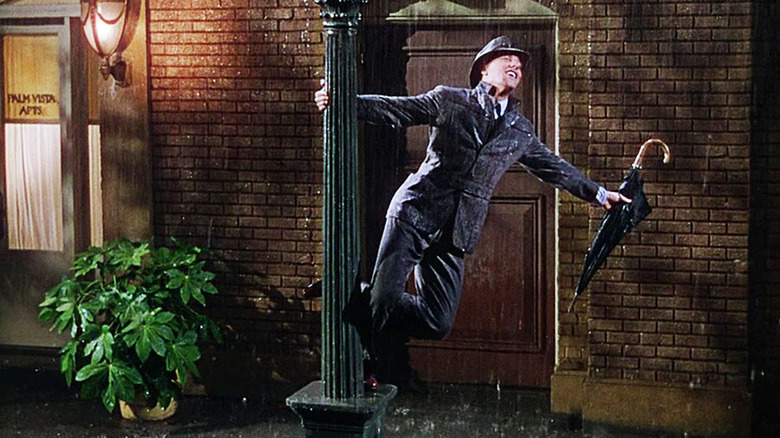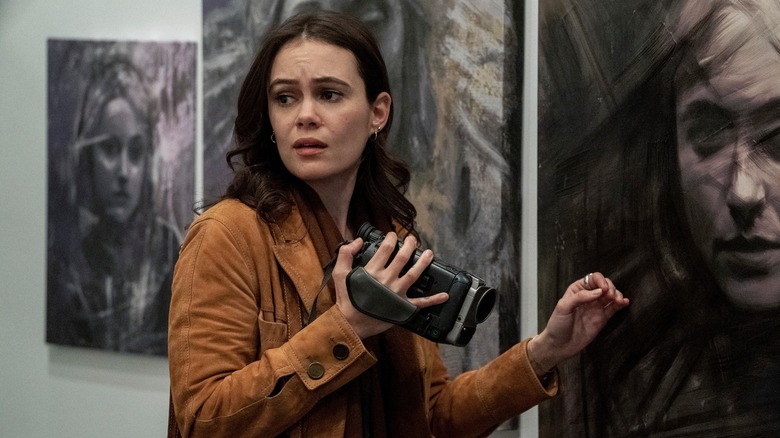Rebecca Sonnenshine Reveals The Origins Of Archive 81 And Other Horror Influences - Exclusive Interview
Contains spoilers for the first season of "Archive 81"
Long before streaming, in the early days of home video, there was VHS. The format (and being able to watch movies from home) was so popular that people would not only rent VHS tapes, they'd even shell out enough money to rent VCRs to play them. Because the most popular movies weren't always available for rent, a booming industry of direct-to-video oddities began packing the walls of video stores across the world for people to explore.
Fast forward to today and, for a certain type of film fanatic, VHS is still exciting, precisely because there are scads of local films so rare and abstract they never made it to another format. People will pore over thousands of tapes at local markets and meet ups in search of something rare, and they often come home with home movies as much as they do anything else.
What would happen if someone were tasked with restoring and archiving tapes which weren't just rare — what if they held dangerous, maybe even supernatural, secrets? That is the basic premise behind Netflix's adaptation of the podcast series "Archive 81."
Looper sat down with Executive Producer and writer Rebecca Sonnenshine to talk about what inspired her to jump from the superhero world of "The Boys" to the supernatural world of "Archive 81."
Archive 81 and the influence of weird student filmmaking
How did you come on board "Archive 81?" Were you familiar with the podcast or was this entirely new to you?
I was brought on by Netflix and Atomic Monster to develop this podcast. I had not listened to it beforehand. I'm more of a news podcast person. I haven't listened to a lot of fiction podcasts, so it was new to me, but the premise of it — found footage, supernatural — those are all things that are very much in my wheelhouse. I [came] to writing from filmmaking. I went to film school. I have my own archive of tapes. I used to carry a camera around everywhere I went, so I felt like this was very much a project that I felt very close to the characters, in a way. I was able to ... come on board and I picked out all my ideas, and then we went forward from there. It's definitely everything I love about a good genre story.
You had done sort of these experimental films in film school, including one where you had a woman dreaming about eating her own head. Have you got to play with what you were doing in college and this project?
Yeah, very much so. I was a very geeky film student at UCLA. I made some experimental films. I was very interested in camera effects ... rolling the film backs and then double exposing. Stuff like that, it's super geeky stuff, which is something I did. We're living in a digital world now, but in the series, [we] definitely got a chance to play with a lot of formats that I used to use. I used to shoot stuff on eight millimeter film, 16 millimeter film, high video, which is what Melody uses in the show.
I did all sorts of weird things with that effect that took me to other formats, and we really got to use that stuff in the show. We really did shoot on high millimeter video ... we had a camera, we shot on it, we put it in the show. Some of it is post production, but a lot of it is not. It's actually that format, so it's super exciting to be honest. [We got to use] some other formats too, like the PXL 2000. It was all super exciting. It made me feel like a film student again.
The TV shows and movies that influence Archive 81
I also saw you've said that "X-Files" is your end-of-the-world bunker show. And I thought, well, that is a show that also I feel like I can see the influences. And I'm curious if "X-Files" and other things, sort of had an influence in the way you decided to tell "Archive 81?"
"X-Files," for me, is ephemeral. I loved it so much. I really loved the way it told stories and visually, it was pretty groundbreaking at the time ... There's a lot of creeping through dark places [in our show] — which was very X-File — [and] flashlights, which is, it was a fun sort of throwback to that. I loved "X-Files." I also love the show "Fringe." I think there's ideas. That was a show about big ideas, and I think that's something that we aspire to in this show as well. Stylistically, we also reference a lot of '70s horror films — "Rosemary's Baby," and throw in paranoid thrillers, "The Conversation," [and] "Don't Look Now." Those are big influences on me when I was in film school, and bringing those out in a TV show was super exciting.
This is getting into spoiler territory, so we'll release this after the show's out. You spend have a whole episode set in the 1920s. How much did you look back into the history of the 1920s, especially its fascination with the occult and the supernatural?
The 1920s were a time of, well, there's been different periods where people are very desperate to believe in things, right? So the '20s, which is right after World War I, where people lost people in the war, this spiritualism exploded again. It had been a big thing during the Civil War, the spirit photography, which is all a hoax, but let's just say it wasn't. It came back into society in the '20s. People wanted to believe. There were all these people proclaiming that they had a new religion. The world was in turmoil. World War I was the war to end all wars. It really screwed up people's minds.
It shook the world up in terms of what you believe in, so that's why the '20s are a very interesting time to me, because there's sort of a desperation to believe in something beyond what we were believing in. Beyond regular religion, they're looking for other things. I've always been obsessed with spiritualism and all that. Being able to use that, the spirit photography idea, as a part of this media, it all kind of bloomed from that place, honestly.
Rebecca Sonnenshine's favorite films and who she'd work with next
There are some general questions that we like to ask people. I was curious what your favorite movie of all time is. I feel like we've already gotten a sense of some of your favorites?
You're going to be surprised, because my favorite movie of all time is "Singin' In The Rain". Best movie ever made. I also love "Rosemary's Baby" and "Donnie Darko" [is] one of my favorite films, so I would say that I'm an eclectic being.
It's challenging to explain to people why you love Doris Day, but also love "Return of the Living Dead."
That's right.
Is there an actor or a director that you have not had a chance to work with that you would love to have on a project that you're working on?
Oh my gosh. Sure, I did. I'm just a huge fan of actors in general. So I love working with great actors and I don't know who anybody. I would love to work with any great actor in terms of directors. Yeah. I don't know. That's a hard question.
What about someone like Gillian Anderson?
Yeah. Absolutely. I went to an "X-Files" convention and got my poster signed by Gillian Anderson, which I still have.
I think it's going to happen. If you're doing stuff on Netflix, she's doing stuff on Netflix. It feels inevitable.
Right? It feels like we both got nominated for Emmys this year, so I feel like we have a kinship.
The future of Archive 81
Back to "Archive 81." By the end of the first season, we've flipped time periods. So, now what? What are your hopes to be able to do with coming seasons, if you get them?
Well, we end on a huge cliffhanger. "How's Dan going to get back to where he belongs?" is the question of the cliffhanger, which is not going to be easy. Also, thematically, our characters have been searching for something that they wanted to know. Who are their parents, or who are they? They have all these answers now, but now they have to deal with the fallout of that. That's kind of the emotional landscape that we're going for.
Everybody's been shaken up into new pairings. Dan doesn't have Mark anymore, and now they're going to have to forge these new relationships with people to work together. That's always what's very funny to me, when you can shake up a show and have people now be paired up with other people. They have scenes with people that you never would've expected them to have, which is very exciting.
Are we going to get to see more evil entities? Because we saw basically one evil and the "Archive 81" podcast has other ones.
Yeah. I would say that we diverge from the podcast, so I think there's lots of things that are up for grabs in Season 2, but Kaelego, he's our demon. He's our guy.
"Archive 81" is now streaming on Netflix.
This interview has been edited for clarity.
